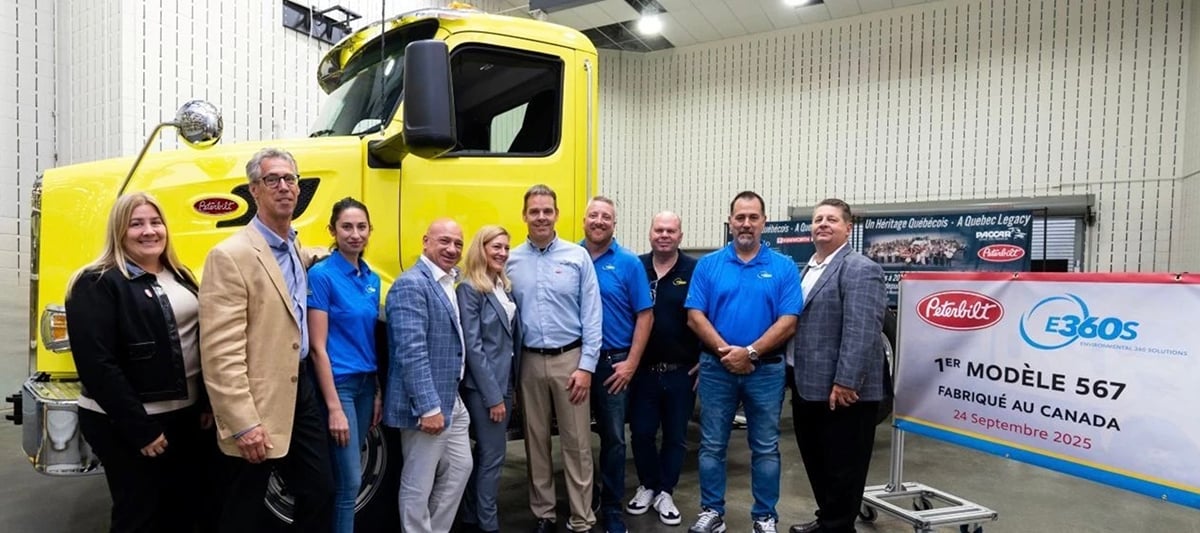BLOOM, Man. — Most farmers know every low spot and bluff of trees on their farm and Pam Pugh is no different.
However, she also knows who has been on her farmland and what they were doing there.
Driving along a snow-covered gravel road west of Portage la Prairie, Man., in late November, Pugh pointed to wooden lathes sticking out of the soil on both sides of the road.
She knew which lathe had been there for many months and could identify ones that were hammered into the soil in October and Nov-ember.
Read Also

Equipment manufacturing may return to Canada
Some ag equipment and automotive manufacturers are now adjusting their production and distribution to avoid tariff costs in relation to supplying the Canadian market.
All of the lathes were labelled BPIII, which is short for Bipole III, a controversial hydro electric transmission project.
Manitoba Hydro, the provincial utility, is planning to build a high voltage transmission line from northern Manitoba to Winnipeg.
A section of the line cuts across prime agricultural land in southern Manitoba, including three sections on the Pugh farm, which is a 2,700 acre pedigreed seed operation.
Pugh can recall numerous times that Manitoba Hydro employees and contractors have come on her land without permission or failed to clean their equipment before entering a field.
After confrontations with Manitoba Hydro representatives and provincial officials, Pugh said she is tired of trespassers and people ignoring biosecurity protocols for farmland.
Her solution to the problem is more global than local. She wants a mandatory biosecurity protocol that would apply to all farmland in Canada.
“We know that utility companies and pipeline companies don’t (always) clean their equipment be-fore entering land,” Pugh said as a north wind whipped snow across the gravel road.
“I want to make it (so) they have to clean their equipment before they go on anybody’s land in Canada…. That goes for agricultural dealerships and you name it.”
In 2013, the federal government introduced a voluntary biosecurity standard for grain and oilseed production. It advises producers to communicate with utilities, pipeline companies and contractors to ensure workers clean equipment before entering a farm.
Pugh said the voluntary approach often fails because workers don’t adhere to the rules.
For example, verticillium wilt, a fungal disease common in northern Europe, was discovered in a canola field in southern Manitoba in 2014. In September, clubroot galls were found on a farm near Swan River, Man., devastating canola yields in a 15 acre patch of a field.
Pugh has raised the idea of mandatory biosecurity at several producer association meetings, and in December, the Manitoba Seed Growers Association passed a resolution on mandatory biosecurity that asked association leaders to investigate the issue.
President Eric McLean said the association will follow up on the resolution, but it’s probably too large an issue for a small farm organization.
He said it would likely hand it over to Keystone Agricultural Producers.
“We will bring this issue up at the KAP (annual) meeting,” said McLean.
“There will be a similar resolution (at the KAP meeting), to which we can tie our support to.”
McLean said Manitoba farmers are talking about diseases such as clubroot, which can move from farm to farm in contaminated soil attached to machinery.
He said Pugh’s proposal sounds like a good idea, but he worries about the potential consequences of mandatory biosecurity.
“You have to be careful what you ask for…. (With) mandatory biosecurity, that means the farmer himself has to … uphold the protocols,” he said.
“That means you have to wash your seeding equipment in be-tween fields…. Is it logistically possible or feasible, with such a tight window to farm in this country, to clean equipment up (every time) you leave and enter fields?”















